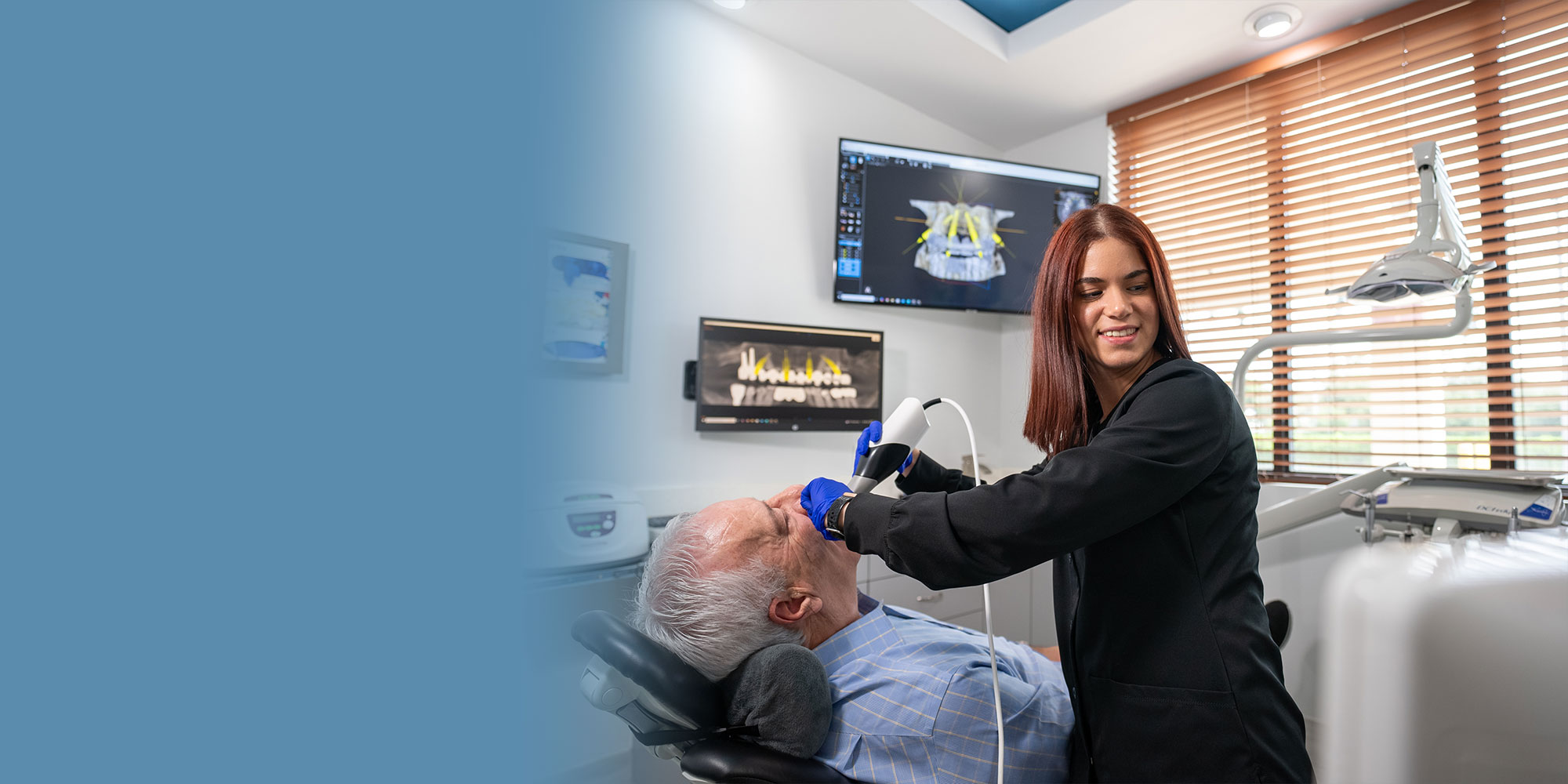What is Gum Disease?
Gum disease often starts with bacterial buildup on teeth and gums, forming plaque. These bacteria release compounds that trigger an immune response, leading to swollen, red, tender gums that bleed easily. Gum infection can progress without treatment, damaging the gums’ attachment to teeth and potentially affecting underlying bone tissue.
Untreated gum disease may cause tooth sensitivity, chewing difficulties, and tooth loss. At Aqua Dental, we specialize in comprehensive gum disease treatment; ensuring your comfort and well-being are our top priorities.

Symptoms of Gum Disease
- Swollen or enlarged gums
- Red or blue-red gums, especially between the teeth
- Gums that bleed easily when brushing, flossing, eating, or speaking
- Persistent bad breath
- Tenderness when eating or chewing
- Sensitive teeth
- Receding gumline that makes the teeth appear longer or shows the root surfaces of the teeth
- Damage to the supporting bone that can be seen on routine X-rays
Early Treatment Matters
Gum disease is often linked to various health issues, such as memory loss, pancreatic cancer, diabetes, heart disease, preterm delivery, and low birth weight babies, which many people may not realize. Prompt gingivitis treatment is crucial to stop inflammation and prevent irreversible damage. Left untreated, gum disease can significantly increase the risk of conditions like heart disease, pancreatitis, and certain cancers. At Aqua Dental in Boynton Beach, FL, our team treats periodontitis at any stage to promote a healthy smile and overall well-being.
Effective gum disease treatment involves multiple stages and ongoing care to maintain oral health. While we understand financial concerns, these treatments are essential to prevent future costly dental procedures and severe health issues. We are dedicated to enhancing your health through comprehensive periodontal care and can assist in exploring financing options to ensure you receive the necessary treatment.

Our Top Periodontal Treatments
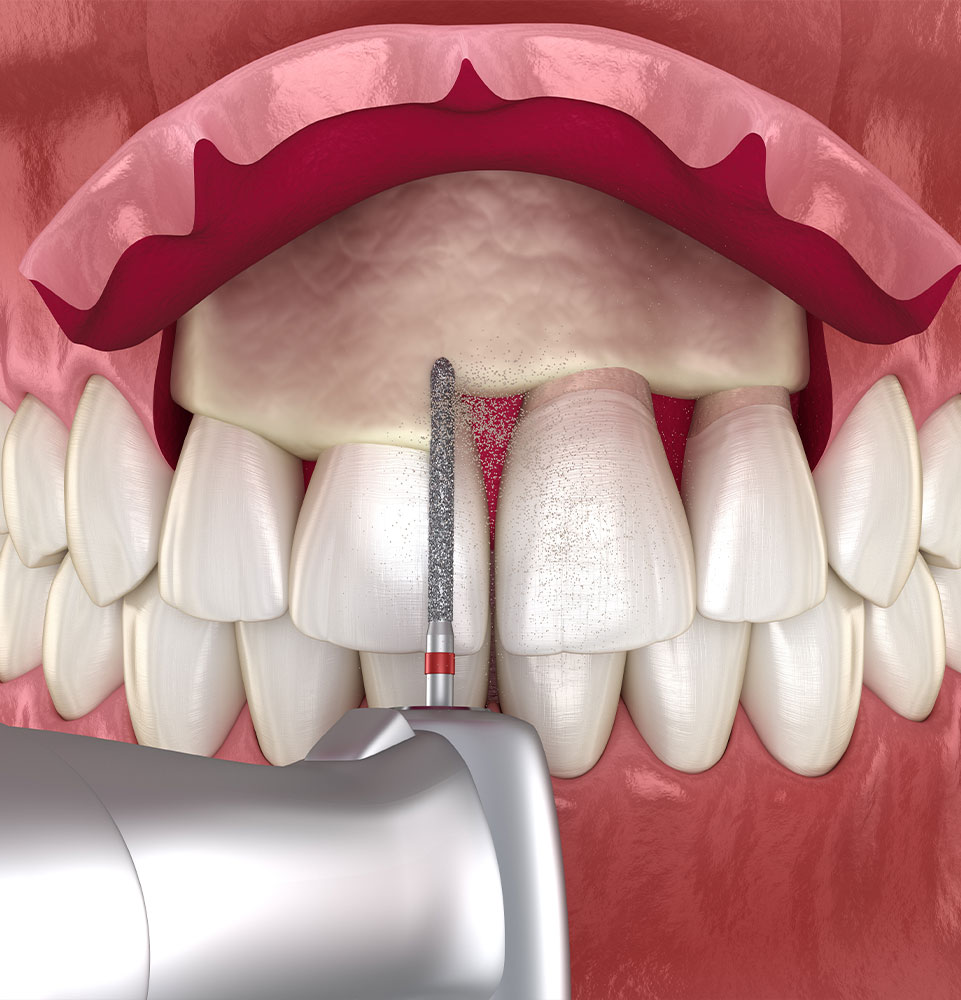
Crown Lengthening
Overgrown gum tissue can compound gum disease by creating pockets where bacteria and food debris accumulate. Swollen gums may give the illusion of smaller teeth. Crown lengthening is a dental procedure that exposes more of the tooth’s surface, facilitating easier cleaning and enhancing the aesthetic harmony of the smile.
Crown lengthening reduces the risk of bacterial buildup and supports optimal oral health by removing excess gum tissue. This process promotes a healthier mouth and a more aesthetically pleasing smile.
Gingival Graft
Periodontal disease can lead to gum recession, where the gumline moves down the tooth, exposing the root surface and compromising its stability.
Gingival grafting is a surgical approach to rebuild lost gum tissue and improve the tissue’s durability to improve the teeth’ stability. Grafting can improve the look of your smile, relieve tooth sensitivity, and prevent tooth loss.
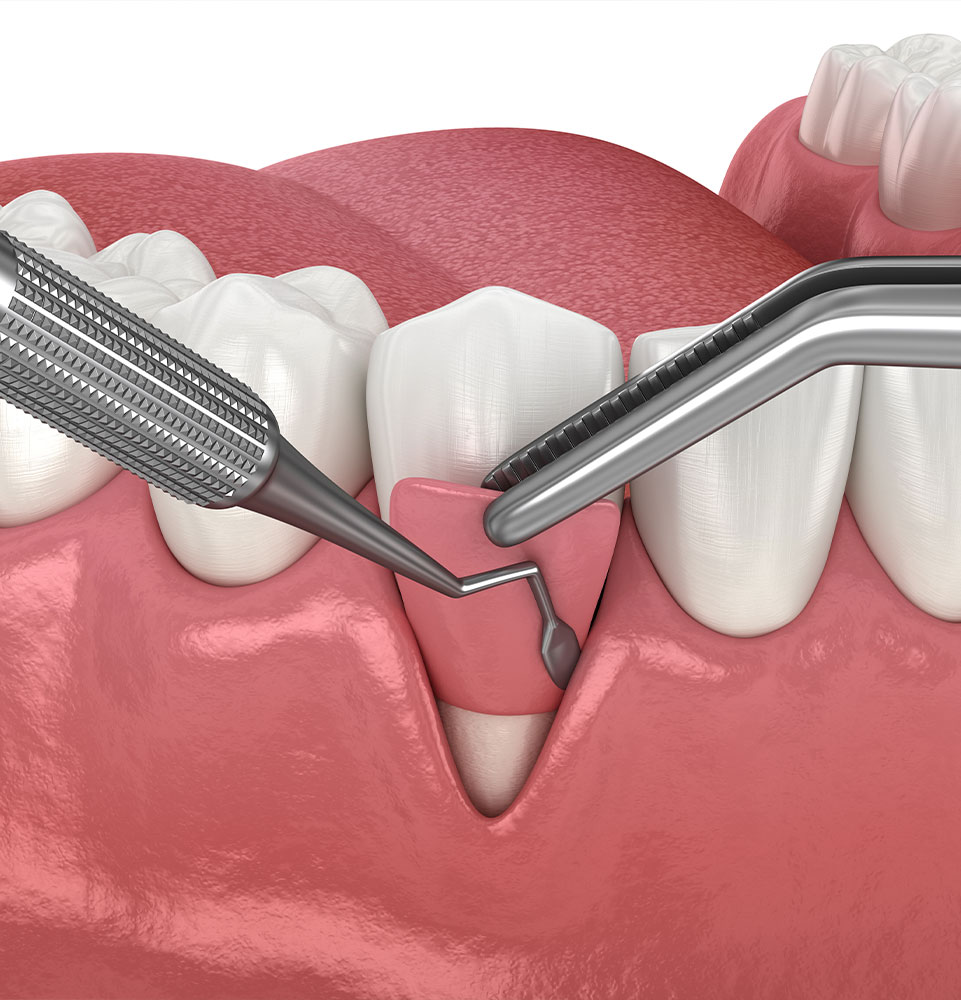
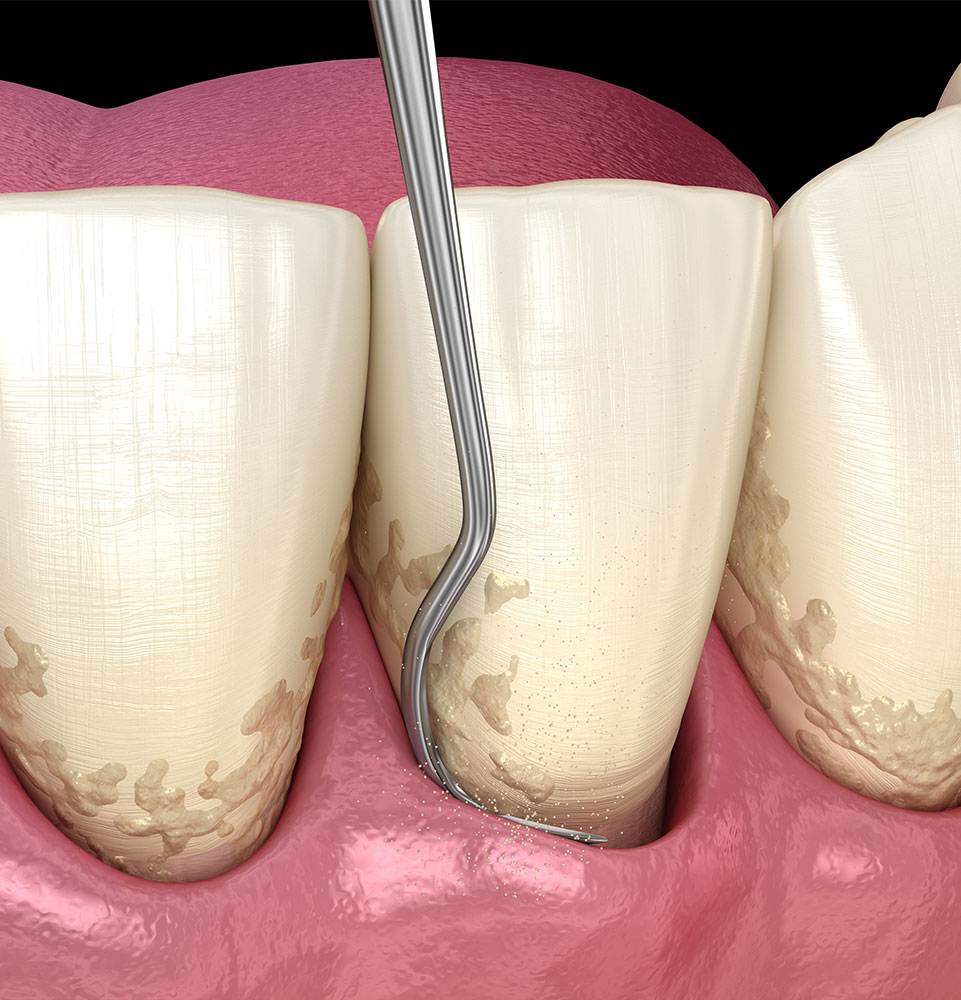
Scaling and Root Planing
Deep cleaning, scaling, and root planing are advanced dental procedures for treating periodontal disease and compromised tissue attachment. Typically serving as the initial step in periodontal treatment, these techniques involve meticulously removing bacterial buildup from the root surfaces of each tooth. This comprehensive approach aims to alleviate inflammation and enhance the attachment of healthy gum tissue, promoting improved oral health.
Frenectomy
Frena are strips of tissue that link our lips and tongue to the surrounding structures of the cheeks and floor of the mouth. When these frena are excessively short or tight, they can cause various issues, such as speech impediments and difficulties with eating and chewing.
Tight tissue can contribute to gum recession by pulling the gum tissue away from its optimal position. A frenectomy releases these tight tissue attachments, allowing for proper movement of the cheeks, lips, and tongue while safeguarding the gums’ health.
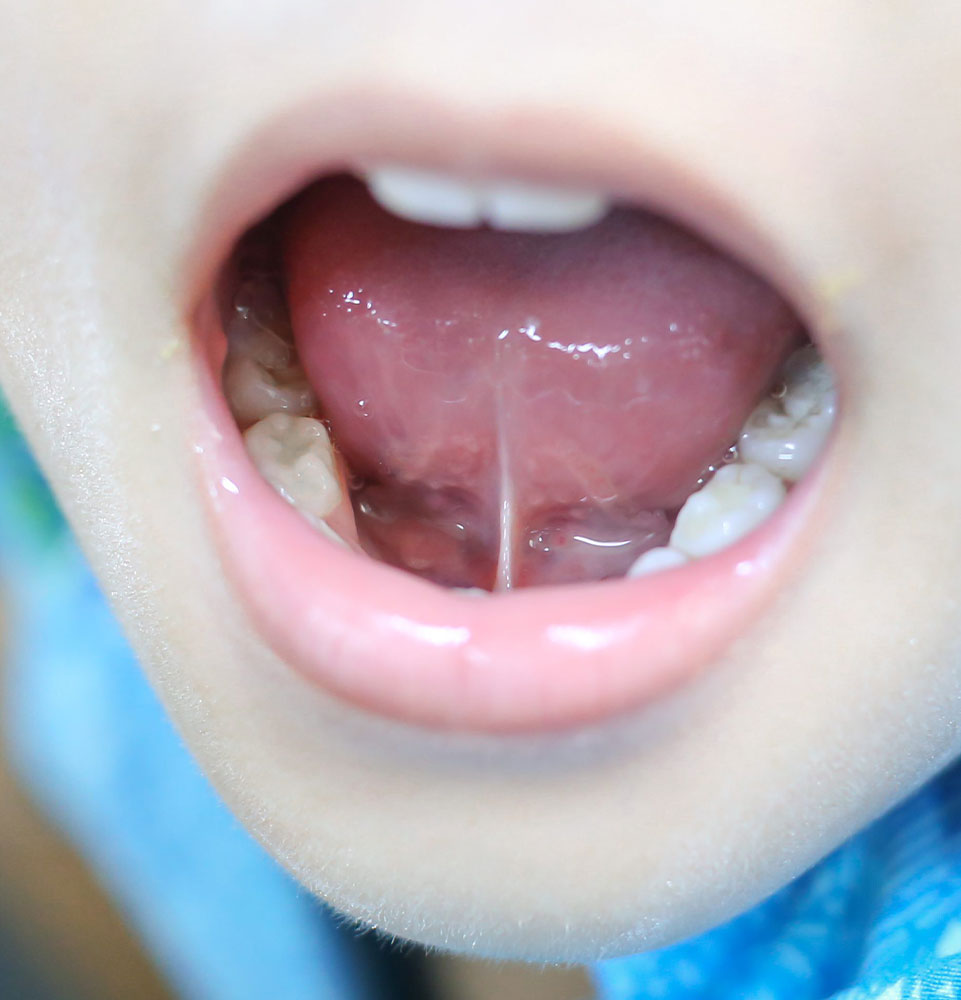
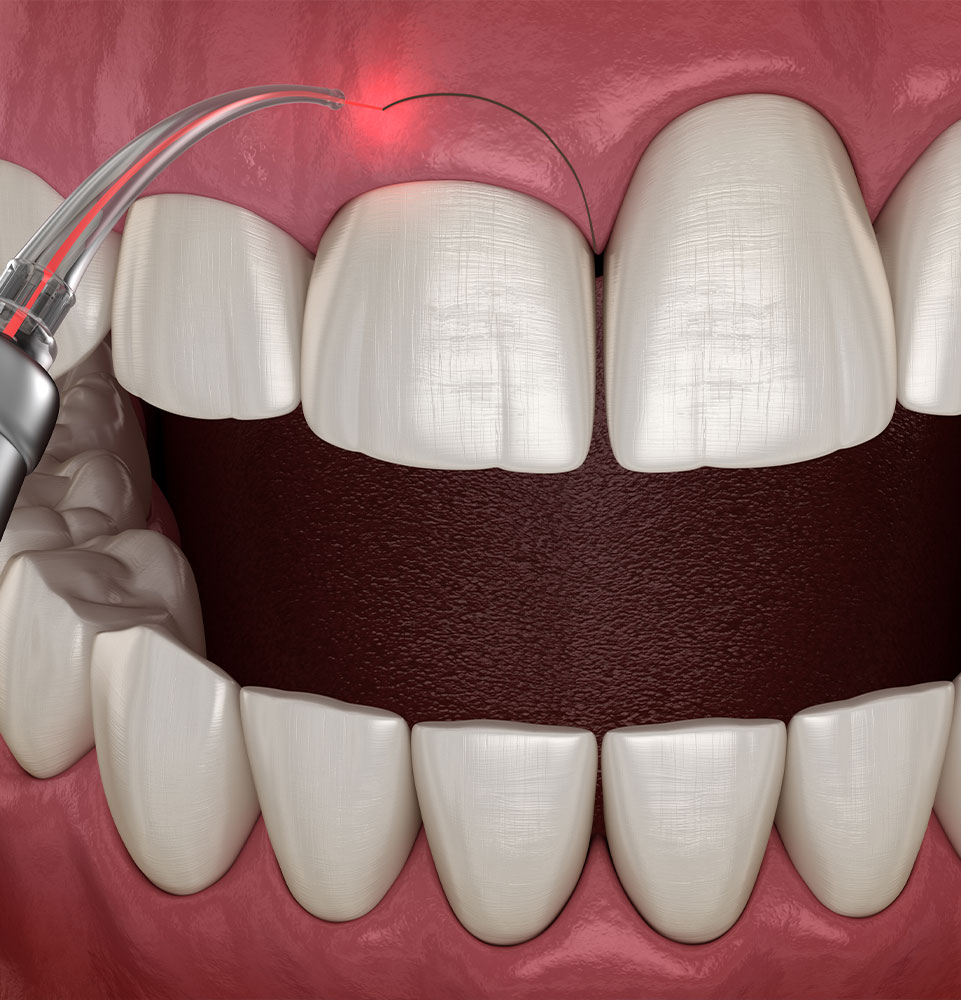
Gingivectomy
Chronic inflammation of the gums can result in excessive growth, covering portions of the teeth that should remain exposed to the oral environment. This alteration in appearance can impact your smile and create challenges in maintaining proper oral hygiene, leading to further inflammation.
Through precise reshaping of the gum tissue and adjusting its positioning and contours, we can enhance the aesthetic appearance of your smile and alleviate inflammation. Gingivectomy is frequently incorporated as a component of the crown lengthening procedure.
Peri-Implantitis
Peri-implantitis treatment is essential for addressing inflammation and infection around dental implants to prevent further bone loss and implant failure. Our comprehensive approach includes thorough cleaning of the implant surfaces, removal of bacterial deposits, and regenerative procedures to restore lost bone and tissue. By utilizing advanced techniques and state-of-the-art technology, we effectively halt the progression of peri-implantitis and promote healing. Trust our expertise to protect your dental implants and maintain your oral health.
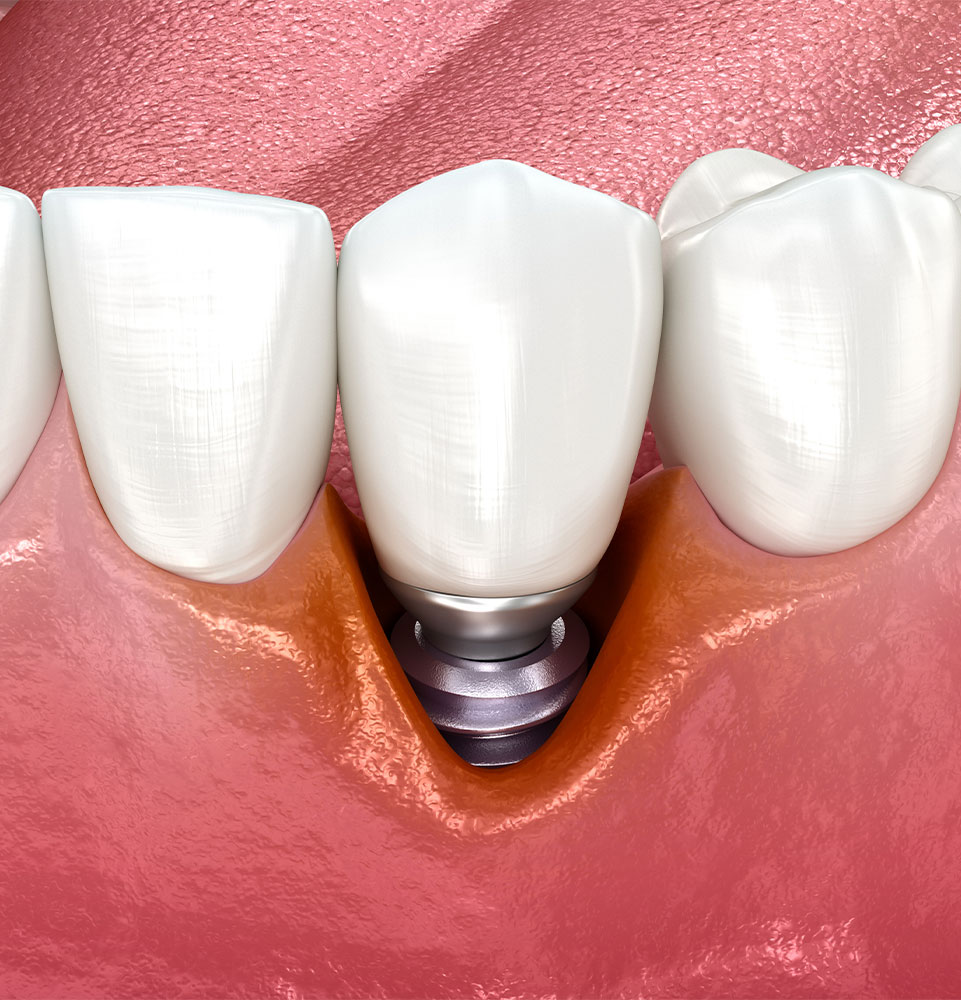
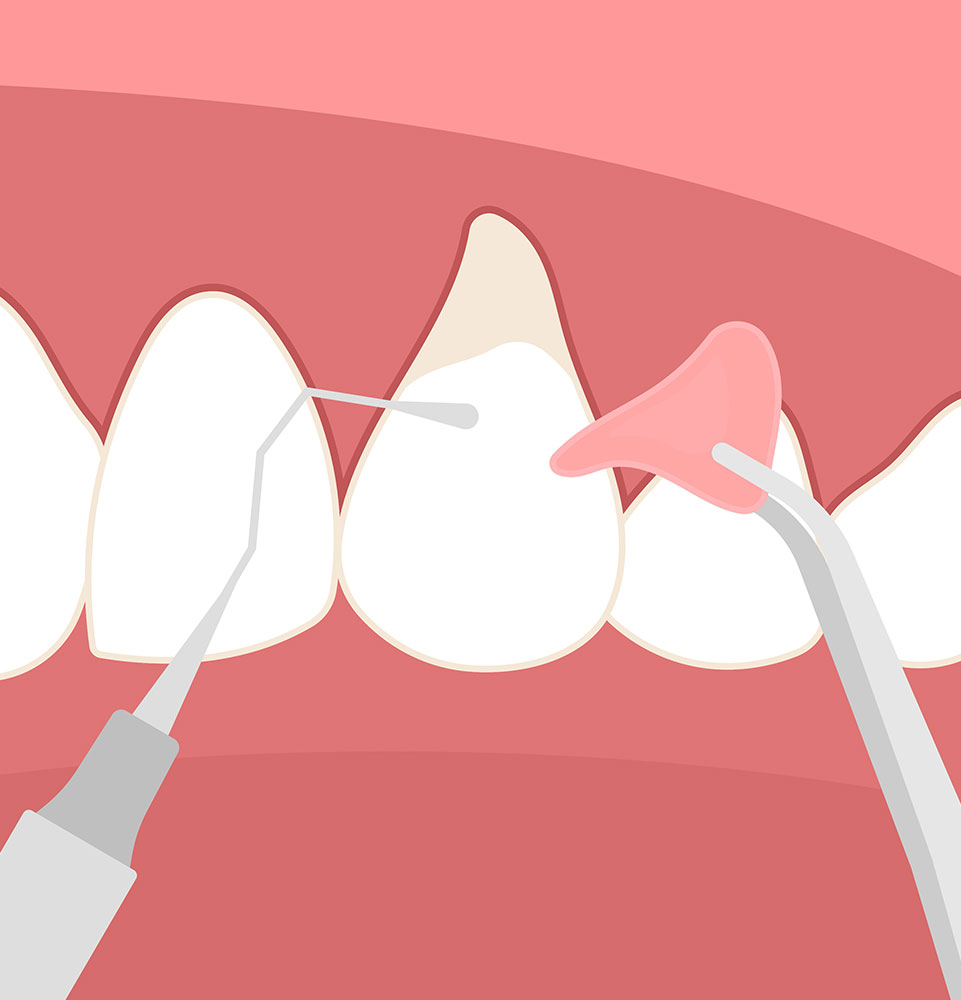
Pinhole® Surgical Technique
The pinhole surgery technique is a minimally invasive procedure used to treat gum recession without the need for traditional grafting. This innovative method involves creating a small pinhole in the gum tissue through which specialized instruments gently reposition the gums to cover exposed roots. The procedure results in minimal discomfort, quicker recovery, and immediate aesthetic improvements. Our expertise in the pinhole surgery technique ensures effective and natural-looking results for a healthier, more confident smile!
Osseous Surgery
Osseous surgery is a specialized procedure designed to treat advanced periodontal disease by reshaping and cleaning the affected bone and gum tissue. This surgical intervention removes infected tissue and smooths irregular bone surfaces to eliminate bacterial pockets and promote healing. By effectively reducing periodontal pockets, osseous surgery helps preserve teeth and prevent further bone loss. Our skilled team ensures optimal results, enhancing your oral health and maintaining the structural integrity of your teeth.
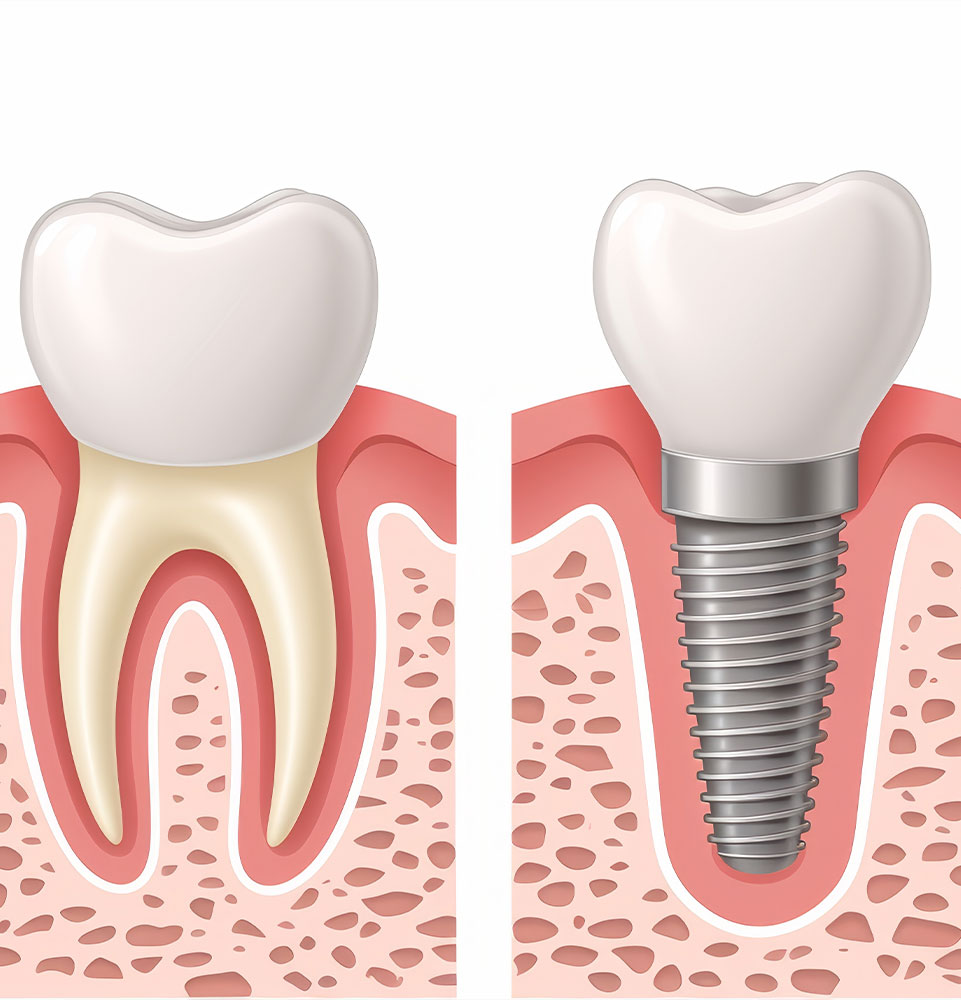
Don’t Let Gum Disease Keep You from a Healthy Smile.
Schedule your periodontitis appointment with our team today!

